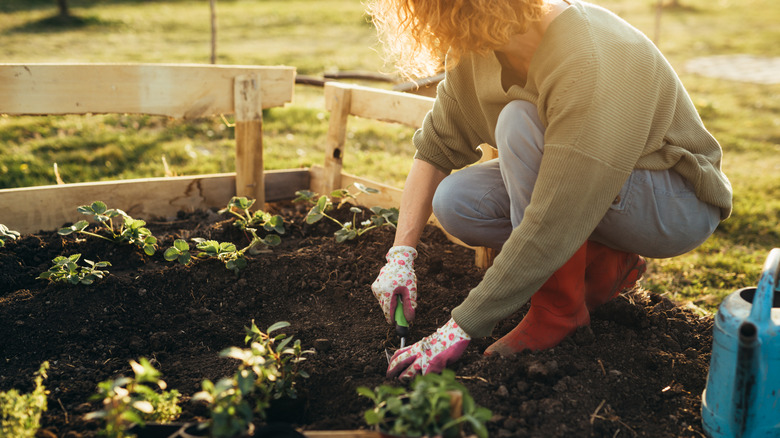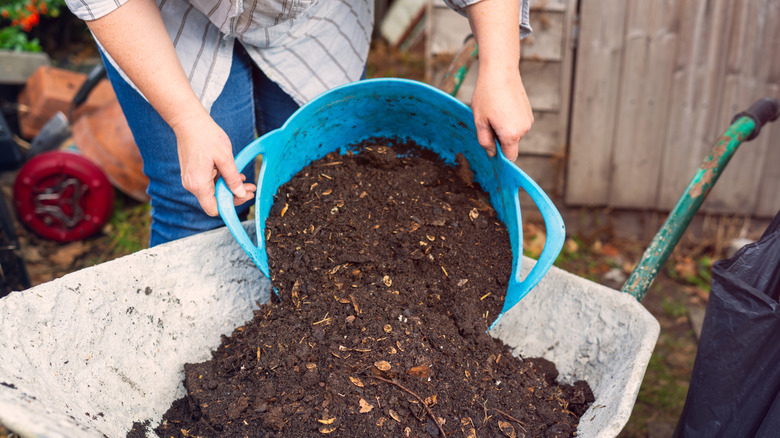Is Costco's Compost Good Enough For Your Garden?
Costco is the undisputed ruler of wholesale — where you can buy anything from 35 pounds of peanut butter to diamond engagement rings, all while munching on its famous $1.50 hot dog and soda combo. Among the seemingly endless rows of storage shelves, you'll also be able to find compost. The question: Is this budget-friendly bulk buy actually good for your garden, or should green thumbs look elsewhere? To find out, Food Republic consulted Lauren Gropper –- CEO and founder of Repurpose.
"Costco's compost is a great, pre-made alternative to homemade compost," Gropper told us, which makes it a convenient choice for those looking for a quick fix instead of waiting for compost to be ready –- which can take up to two years (though it's a great way to reuse your coffee grounds). "It's made up of natural ingredients meant to increase the nutrients your garden receives, like kelp meal and earthworm casings," she added. These ingredients have a big impact: Kelp meal acts as a natural activator and also contains beneficial growth hormones while earthworm casings are rich in nutrients and beneficial microbes, which improve soil structure and support plant growth.
Gropper noted, "Costco compost will help grow your plants without unnecessary additives or chemicals." This is because Costco compost is certified organic: "It's also OMRI (Organic Materials Review Institute) listed, which confirms the compost is made with organic ingredients and materials." This makes Costco a great choice if you're looking for a compost free of synthetic fertilizers, pesticides, or herbicides.
Bagged Compost: What should you look out for on the label?
According to Lauren Gropper, if you follow three steps when picking out your compost, your garden will thrive: "First, look for the word 'organic' on the packaging — organic (vs. 'natural') typically means the compost was made without added synthetic chemicals or ingredients." The terms organic and natural are often –- and incorrectly –- used interchangeably. Organic products refer to strict standards set by USDA that require adherence to specific growing, processing, and handling guidelines. Conversely, natural is a vague term, and may still contain elements that wouldn't be classified as organic. It is an easy marketing trap to fall for –- a 2016 Consumer Reports survey found that nearly 73% of shoppers thought that natural meant no pesticides or GMOs, which is not the case.
Gropper also told us, "Second, look at the ingredients of the compost — if it includes pesticides or synthetic fertilizers like ammonium nitrate or potassium chloride, avoid it." Pesticides and synthetic fertilizers can damage useful soil microbes, disrupting the overall soil ecosystem and damaging long-term plant health.
Finally, alongside looking out for OMRI certificate awarded to Costco's compost, Gropper also recommended keeping an eye out for other certificates such as: "OIM (Organic Input Materials), CCOF (California Certified Organic Farmers)[,] and NOP (National Organic Program)." These are all credible organisations that set strict input standards for organic growing. If your compost has these certifications, it's a safe bet that they're a good fit for your garden.


